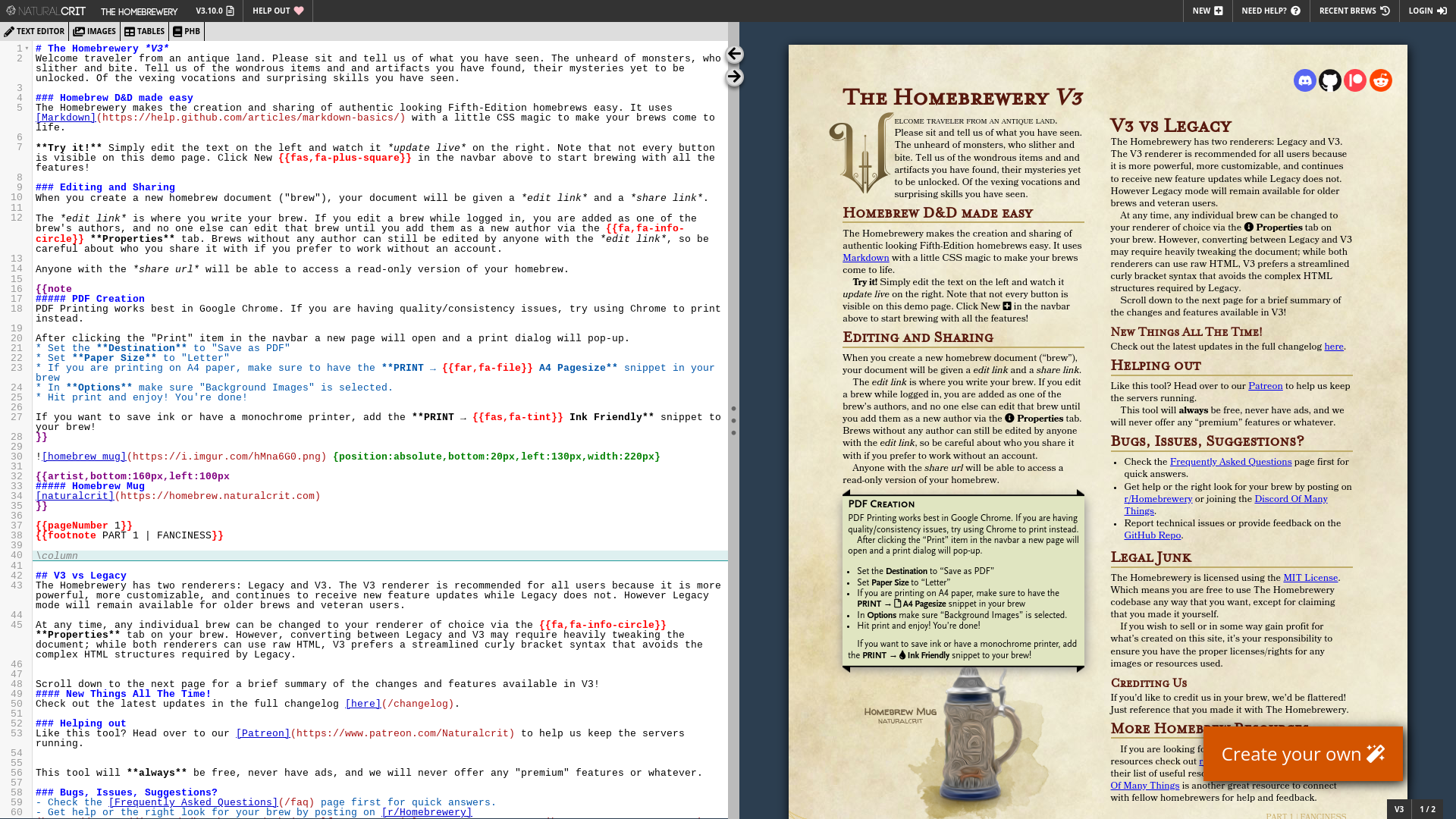Back before NaNiWriMo, I started work on a writing assistance plugin based on VS Code/Codium and started integrating that with Dungeons and Markdown – another VS Code plugin that makes use of Homebrewery. I let the work sit after November because, well, I’m an idiot. I got distracted and haven’t come back to it yet.
In the time since I’ve been annoying the primary maintainers of Homebrewery with good and bad ideas, questionable PRs, and general misunderstandings about what they had in mind. While it has been an up and down journey, I’m enjoying it.
If you aren’t familiar with Homebrewery, it is a neat tool. It takes a lightly extended Markdown and through the magic of CSS creates lovely HTML that emulates the 5th Edition D&D Players Handbook layout. That’s a slight oversimplification, but it’s close.

There are also a number of predefined resources for emulating text blocks, like monster stats, spell listings, and the like. It’s just neat!
I’ve had… thoughts? ideas? intentions? for working on layout software for a number of years and even tried to start a few times but like many things, never really got very far. This scratches a LOT of that itch. After playing with it for a while I started thinking on ways I could use it outside the focus of D&D. Most of the 5e patterns were implemented via CSS theming and helper “snippets” ( think templates and macros ) so creating something without that look and feel of 5e should be a breeze.
Well. Not so much. The biggest blocker is theme selection itself. While code is in for theme selection is in place, it’s not enabled, requiring the override of a bunch of 5ePHB derived assumptions. Not insurmountable, but still a chore. Down the rabbit hole I went, looking into the different places that my highly opinionated self thought extension, enhancement, or alteration was needed to assist Homebrewery in becoming equally useful to small press aspirations without more complex and unwieldy tools.
Joining in with any open source project is often a challenge. Each group has its own culture, patterns of behaviours and expectations, and language difficulties. Homebrewery was no different. The core team is fairly small, making it a little easier to integrate into the group. They’re a good bunch – putting up with a lot of questions and input that seemingly came out of left field. More than a few of my ideas on new or adjusted features had that awkward mix of exhuberance and lack of historical perspective that can give rise to conflict but the team handled it … well, better than I did.
Leave a Reply